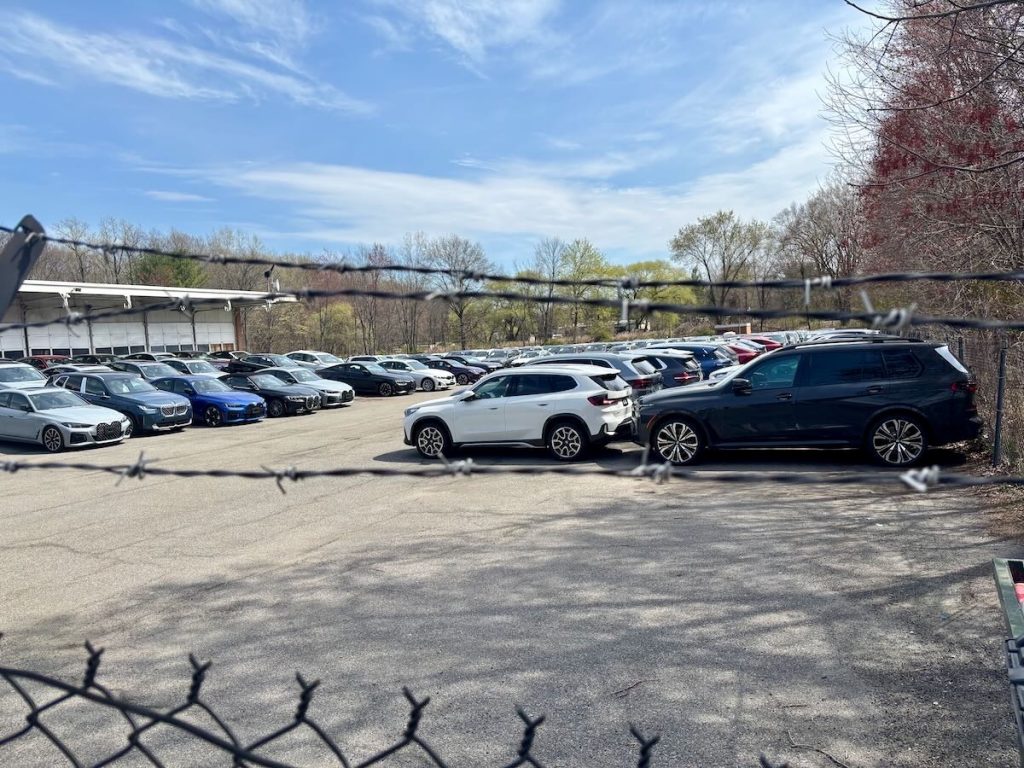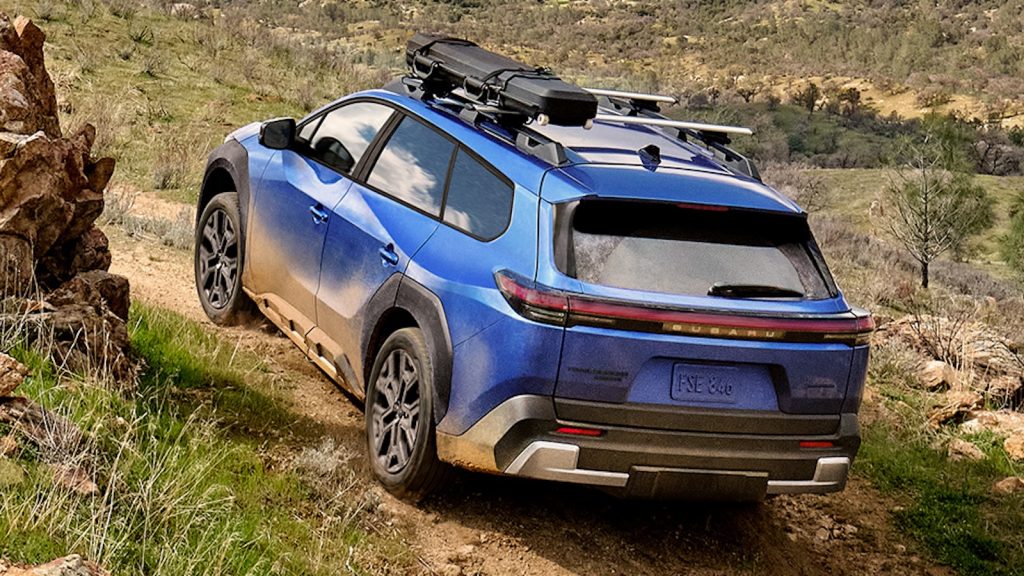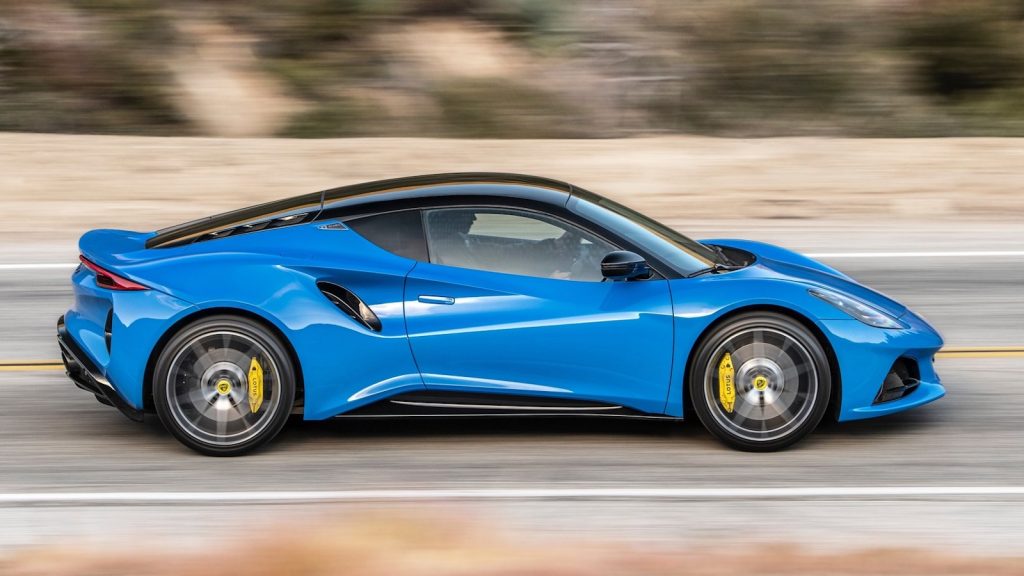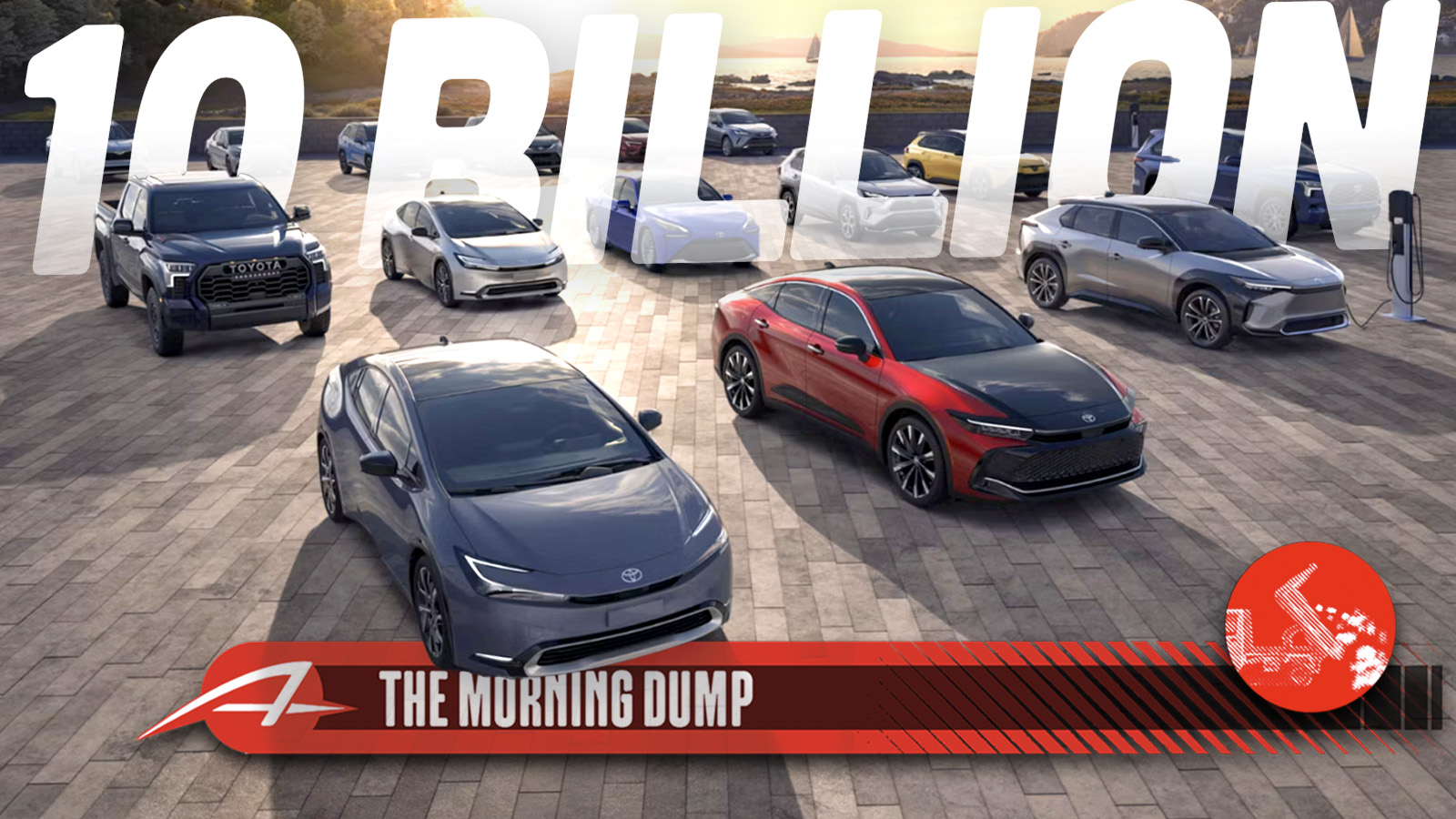Toyota was the last of the major Japanese automakers to report its earnings and projections for the upcoming fiscal year, with the company announcing it’ll see about $9.68 billion in tariff-related costs through next March. The unresolved question of all of this, ultimately, is who will end up paying the price.
For now, it’s the automakers, but anyone who reads The Morning Dump is aware that what can seem like short-term gain can soon turn into long-term ruin. I’m getting some real Tavares-era Stellantis vibes from the economy right now, and I’m not alone in sensing something might turn the wrong way.
Subaru has the same concerns. The automaker is simultaneously releasing a slew of electric cars while, at the same time, considering whether or not it needs to slow down its electric car plans. This is a slow motion reversal, as opposed to whatever has been going on at Lotus.
Is it Thursday already? I guess it is.
Toyota Will Take A $9.68 Billion Hit And Also Remain Profitable
Japanese automakers are on a fiscal year that ends in March, which is why roughly a year ago, I got to write about how Toyota became the most profitable company in that country’s history. This was a high point for Toyota, but the numbers didn’t tell the full story. As we would learn, this rush to profits involved allegedly squeezing its subsidiaries nearly to the breaking point, and resulted in a bunch of embarrassing admissions about fudged tests and a call for major reform.
The automaker was in the process of making these reforms when a new administration in Washington decided to upend global trade. The result? Here’s how Toyota put it in its FY2026 Q1 presentation:
The full-year operating income forecast has been revised downward by 0.6 trillion yen from the previous forecast to 3.2 trillion yen. Concerning the impact of U.S. tariffs, in light of the Japan-U.S. agreement, we have now factored in the full-year effect. As a result, we are expecting a 1.4 trillion yen impact, a 1.2 trillion yen increase from the impact reflected in the previous forecast.
If you can’t do the conversion in your head, that’s about $9.7 billion at the current exchange rate. Is this being conservative? Probably! Toyota is a conservative company, and the recent trade deal might be more in its favor. Additionally, if the yen falls against the dollar again, that could help reduce some of the impact.
Will Toyota still make money? Sure. In the last quarter, there was a 142% drop in year-over-year operating income, but the company’s margin was still a healthy 9.5%. Toyota projects that it’ll see operating income for the full fiscal year drop by about $4 billion, with a margin of 6.6%.
Not great, not terrible.
There’s a bit of a question as to who exactly will pay for all of this.
You Will Pay For Some Of This, Eventually

I’ve become a little obsessed with the short-term/long-term of all of this. There’s a version of history that says the Democrats lost in the last election cycle because everything got more expensive. One of the reasons everything got more expensive is that companies used the pandemic as an excuse to raise prices beyond what was justified by cost increases. This is called “greedflation,” or maybe “Sellers’ Inflation.” In the automotive world, we had “Trimflation.” If you were bummed that your bag of potato chips suddenly felt lighter, that was “shrinkflation.”
Most economists have expected that all of the President’s tariffs would make everything more expensive, which seems counterintuitive to what voters expected, but it’s a bit more complicated than that. Companies have been slow to raise prices. Why? Bloomberg points to a couple of reasons why:
US businesses are the ones coughing up the money to pay the tariffs at ports and airports across the country. Even at 10%, those fees result in a substantial increase in costs. (One shipping container coming into the US will often carry $1 million worth of products. A 10% tariff means $100,000 more in taxes.) This leaves companies with a couple of choices: They can eat those costs and simply accept lower profits, or they can pass those tariffs along to us. So far neither has happened in a major way. What’s going on?
Chad Bown, an economist at the Peterson Institute for International Economics, has been studying the tariffs. “It’s all that I do,” he says. He thinks we’re in a kind of liminal space with tariffs. The reason: Many companies haven’t really been paying Liberation Day tariffs yet, because they started panic-importing long before April 2. “Trump campaigned on tariffs,” Bown says. “When Trump won the election, American companies said, ‘Gosh, we’d better import as much stuff as we can and put it into storage in case he actually does impose those tariffs.’”
Every few weeks, I go to the lots where automakers store excess cars brought in via the New Jersey port, and those lots seem extra full recently. Erin Keating, an analyst over at Cox Automotive, points out that costs are not immediately rising dramatically:
So far, consumers have been shielded from higher prices. Average transaction prices (ATP) are mostly flat or slightly down year over year, even as manufacturer’s suggested retail prices (MSRPs) continue to rise. We believe MSRPs are more closely related to the cost of producing a vehicle, and our estimates show that MSRPs were up 2.3% year over year in June, marking the third consecutive month of higher MSRPs. This increase is lower than long-term averages, but after nearly two years of steady new-vehicle prices, the trajectory is clearly on the rise now.
ATPs, on the other hand, were higher by only 1.2% in June, suggesting consumers are not yet feeling the full force of higher costs. Instead, automakers and dealers are containing the higher costs created by tariffs while watching profitability decline. Popular compact SUVs are being hardest hit by tariff policy, as many are imported. With tariffs in place, automaker costs increase by an average of $2,800 per imported unit. Subcompact SUVs are hit hard as well: The average tariff bill is nearly $3,000. Consumers, however, are not yet seeing this level of increase at retail.
But that won’t last. The Cox Automotive team still expects consumers to see retail prices climb by 4–8% by year-end, with price increases accelerating as 2026 model-year vehicles hit the market. An update on July prices from Cox Automotive will be available next week.
That 4-8% impact on car prices is what consumers will pay, and that giant range is a measure of how much uncertainty remains in the market, and how different automakers will see different outcomes. Toyota has a strong balance sheet, global sales, and enough heft to absorb a lot of this.
If you look at the base Corolla, that’s approximately a $24,000 car, delivered. With a 4% increase, it becomes a roughly $25,000 car. At the higher end of the estimate, it becomes something closer to a $26,000 car. In this scenario, you’re paying $1-2,000 (plus another $400 possibly in interest), and Toyota, potentially, is paying $2,000. My guess is that Toyota will remain at the lower end of the range, given its modeling. It’s not the biggest leap in the world, but for consumers still facing higher interest rates, it’s not welcome news.
Is there an upside to this? Maybe. More companies are looking to expand operations in the United States, meaning more jobs in certain places and certain industries. For automakers who make big trucks, there are ways that relaxed fuel economy standards could offset some of these increased tariff costs and make those vehicles cheaper.
Even if the cost to consumers isn’t an immediate wallop, there are other concerns, which the Bloomberg editorial board laid out in stark terms:
Tariffs that are substantially — even if not ruinously — higher will raise prices, blunt competition and hold down living standards, especially in the US. Note that choosing not to retaliate, while embarrassing, leaves Japan and Europe more open to trade, ensuring that the US will be the biggest long-term loser.
Worst of all, US bullying will cause lasting and possibly irreparable damage to America’s alliances. From now on, humiliated governments and their angry electorates will discount US promises and no longer look so kindly on its geopolitical priorities. Over time, they’ll lessen their reliance on Washington and deepen other economic, diplomatic and security relationships instead.
Even if the administration’s short-term gamble pays off politically, this supposed triumph will eventually be seen for what it is — an inordinately expensive, and entirely self-inflicted, error.
Historians may judge this as a massive foreign policy error; completely unrelated: President Trump just fired a bunch of foreign policy historians.
Subaru Walks Back EV Spend, Cranks Up U.S. Factory

Speaking of history, I do wonder if society will look back at the present moment and see the drop in electric car commitments as a response to White House policy. I think that would be largely incorrect. The example of China and Norway is that consumers will adopt EVs (or at least EREVs) when it’s made easy and affordable for them because, for most people, these are way better cars.
No offense to the Volkswagen Santana (I now badly want a Chinese-market Santana taxi, thanks, LionZoo), but a Nio ET7 is a 9,000x better vehicle.
The other lesson of China and Norway is that it’s enormously expensive and labor-intensive to make this switch right now, given the state of battery chemistry limitations. The reality, automakers were already well on their way to trimming back forecasts before the election, and the idea that the market in the United States would suddenly be 80% electric cars by 2030 was always a bit silly. What do I think the new car market will look like in 2030, roughly?
- 20% EV
- 30% Hybrid
- 5% PHEV
- 10% EREV
- 35% ICE
That’s backed up by nothing but vibes, but there you go. I’d love for there to be more EREVs, so I hope I’m wrong.
Where does Subaru end up in all of this? Here’s what the company announced, via Hans at Automotive News:
Amid the weakening earnings, CEO Atsushi Osaki also said the company was re-examining the timing and allocation of its ¥1.5 trillion ($10.37 billion) investment in electrification.
It is also looking for ways to produce more vehicles out of its only U.S. assembly plant.
Citing the end of U.S. tax credits for EVs and the cooling sales growth for battery electrics, Osaki said Subaru wants to boost its production ratio of internal combustion and hybrid vehicles.
Subaru Corp. has previously said it wants to electrify all its vehicles — with either standard or plug-in hybrid setups or full battery-electric systems — in the first half of the 2030s.
Now it says it expects to achieve a 50 percent all-electric ratio sometime after 2030.
So, “sometime” could mean 2031 or 2099.
At the same time, because of tariffs, the company is looking to see if it can squeeze 400,000 cars out of its one American plant this year. That’s more shifts and more work for people in that community, which I’m sure they’ll be grateful for.
European Lotus Boss Leaves After Four Months

I mostly skipped the drama around Lotus because it happened so quickly and, you know, our Norfolk readership ain’t huge. If you missed it, the Financial Times reported that Lotus parent Geely was going to shutter the historic Hethel factory earlier this year. Then, a day later, the Government stepped in and Lotus said it was absolutely not going to close its Hethel factory.
Unsurprisingly, European Lotus boss Matt Windle, who just got the job, ain’t sticking around for much longer. I’ll let the FT take it away since they’ve been on top of this story:
Windle, who started off as chief engineer at Hethel, was promoted from running the UK business to head of Lotus Cars Europe in April when his predecessor, Dan Balmer, left after less than a year.
However, following the turmoil over the future of the Hethel plant, Windle recently agreed to step down from his role and has been absent from significant meetings over the past few weeks, according to two people with knowledge of the situation.
Lotus and Geely declined to comment. Windle did not respond to requests for comment.
Lotus is one of those companies I will probably always be rooting for, mostly because Lotus is one of those companies that will always require people who root for it in order to survive.
What I’m Listening To While Writing TMD
Rob Harvilla just put out an episode of his excellent podcast on Wilco’s “Heavy Metal Drummer,” and it’s just reminding me how much I love the album Summerteeth. I suppose Yankee Hotel Foxtrot is supposed to be the American OK, Computer, which also reminds me that I also slightly prefer The Bends to that album. I’m weird that way. It’s a drag-ass Thursday, so let’s listen to “I’m Always In Love.”
The Big Question
What’s your favorite Toyota product of all time?
Top Photo: Toyota









1.Hilux
2.Celica All Trac
3.Previa SC AWD
4.LS430
5.2000GT(Bond Version)
As to my favorite Toyota of all time at least in the USA is the 1990 Toyota regular cab long bed 4×4 pickup. Last if the real Toyota trucks as they had regular cabs and long beds.
Why do people lose their mind over tariffs but are completely ok with corporate taxes? The consumer takes it up the wazoo in both instances.
I’ll try to answer your question seriously and honestly. Corporations are entities within a community or society that benefit from things provided by government such as security (whether militarily as a country or by law enforcement locally), transportation and other infrastructure, education of the local populace providing needed knowledge to create able workers, etc. Therefore, it’s not a great stretch to say if income tax is going to exist corporations should be taxed just as actual humans are taxed for much the same reasons.
Tariffs on the other hand are historically meant as tools to alter the dynamics of trade between countries and it’s a lot more difficult to connect the benefits of that taxation directly to the entity that is paying that tax, regardless of whether the producer, importer, or consumer eats the cost. The same goes for certain consumption and “sin” taxes, where the taxed entity is doing something that exerts a cost on society as a whole or that someone simply defined as “bad”. An entity is effectively paying for the “good of society” or “in the interests of the country” as a whole as opposed to deriving a direct and tangible benefit of that taxation.
That’s the big difference to me, as simply as I can put it.
Summerteeth is an amazing album. It’s often overlooked by Wilco fans since it doesn’t feature much the band’s current line-up and doesn’t sound like any of the albums before (country-rock) or after (alternative rock). But, damn, every song is a winner.
The 80’s pickup, with the 22R, preferably in 5 speed 4×4 configuration. All the truck most people will ever need.
My nostalgia choice. So many happy memories.
Honestly? Probably the Corolla. There was a point in time where 5 of the 7 vehicles owned by close family members were Corollas.
It’s all the car most people needed, and you also didn’t feel bad for buying one.
It’s not cool, but it’s also impossible to argue.
They’ve sold a hojillion of them for a reason.
Liked for the honesty and self-awareness.
The answer to the headline question is simple, $10B. All the other analyses are just a game of three-card monte. If you don’t pay for it in higher prices, you will pay for it in lower quality products, reduced stock value, or some other area. Just because it doesn’t get a line item on the vehicle sticker doesn’t mean it doesn’t get paid.
The answer to the other question is straightforward—the 2000GT.
Big Q? It’s gotta be the Toyota AE86 Trueno, the star of the of the Initial D series. That was one of the first things that got my daughter really into cars as she discovered it somewhere in the midst of a strong weeaboo phase. That also led me to watching it and I found it to be a lot of fun as well.
She has since phased out of Initial D and all things Japanese into IMSA races and wrenching on her ’87 Corvette. I don’t think the “White Ghost of Akina” was the only thing to help out on the way to being a pretty intense auto-enthusiast, but it was certainly part of the journey.
It’s funny how kids can latch onto cars. My 8-year old son is borderline obsessed with Skylines and it amazes people at car shows and C&C’s when he yells “look at that R34!” or gets excited about an R32.
Speaking of the AE86, my son got excited when our neighbor got a GR86 but he didn’t know what it was. When I told him his eyes went wide and he asked “It’s a new 8-6?!” Well, yeah kinda…
The AE86 also happens to probably be my favorite car in Gran Turismo 7. I have one tuned as far as it will go in Fujiwara Tofu livery that’s so much fun to race in everything except the power tracks.
If this doesn’t sum up 2025 in one well-constructed sentence, I don’t know what does.
6.6% profit does not seem good at all to me. It is certainly not the expectation and norm for other industries.
The Tariffs will certainly result in inflation short term. It will just be interesting to see if the tariffs do what tehy are intended to do which is eventually bring jobs back to the US at higher or maybe similar wage points so the other countries lower wage standard does not drive down prices, or allow prices to remain where they are for products built outside of the US.
Also Favorite toyota – 1985 Celica Supra, but only because of memeories of a base Celica from 83. Other than that they are all just kind of meh. I did kind of like the 90’s supra styling and cannot deny the performance potential in that, I also like the FJ Cruisers (Fake Jeep?) but not enough to want one. I think the only sort of toyota car I really wanted was the Lexus SC300 Coupe.
No, 6.6% is not good and Toyota will not stand for that for long. They are used to seeing 10% +/-
I really doubt tariffs bring manufacturing jobs to the USA. They didn’t in the early 00’s when Bush tried it. They didn’t in Trump’s first term either. In both cases the USA lost manufacturing jobs. I saw it with my employer as we shifted outsourced more parts and vehicle manufacturing to Mexico in response to the 25% steel tariffs in 2018. Those jobs did not come back when the tariffs were lifted.
This time around is not different with us shifting production to Mexico yet again. It was just labor that cost less in Mexico. No labor, raw materials, and imported parts cost less in Mexico. It is cheaper to simply pay the tariff on the final vehicle. We certainly aren’t going to spend billions for a new plant in the USA when tax policy, tariff policy, and regulations continually change.
As to the purpose of tariffs – there is no unified plan. Tariffs are said to both be there to raise revenue and return manufacturing to the USA. They can’t so both because if manufacturing returns the tariffs revenue goes away. Then there is the US use of tariffs to punish countries for random things. We run a trade surplus with Brazil but just hit them with a 50% tariffs because they are prosecuting one of Trump’s friends. We are hitting India with a 50% tariff because they buy oil from Russia. Switzerland has no tariffs on US goods but we hit them with a 39% tariffs because ?????. Mexico got another extension because the president gave Trump a call and flattered him.
It depends on the manufacturer and industry. 6.6% is perfectly acceptable for Honda and a field day for Ford, as well as your average groceries or retailer. Not everybody is Toyota. Or Ferrari (27%), for that matter.
At least Toyota has wiggle room. VW was at 8.3% in 2023 and now is well under 4%.
I am mostly talking any other industry than the automobile industry.
My favorite Toyota?
1963 FJ45 pickup and the 2026 Grand Highlander Prime PHEV Woodland with 40 mile range.
If you’ve never seen it, the Wilco doc I am Trying to Break Your Heart is also pretty good.
It’s a good doc. If I recall correctly, there was some awesome performance footage maybe on the DVD bonus material?
It’s been a long time. If i recall, there’s a great version of I’m Always in Love in there too.
I caught Wilco with Waxahatchee a few months back. It was a great show, but Summerteeth was grossly underrepresented.
Favorite Toyota product? Lexus LS400 (Toyota Celsior).
1st gen 4Runner
Specifically, an 85
Oh, what a feeling!
Good reference! I remembered those ads as a youth. People jumping in the air celebrating and they would pause while they were mid air. That’s long before they had commercials celebrating obesity sadly.
Favorite Toyota product? Lexus LFA, hands down. Definitely NOT a “boring appliance”.
Probably the Tercel AWD and Corolla All-Trac? Late 90’s 4-Runner? This is a hard question as there are a whole lot of Toyotas, lol.
If we’re expanding it to Lexus, LC 500.
Fave Toyota has to be a late-naughts Hilux with the diesel engine.
I was lucky enough to take one through its native habitat – some muddy mountain/jungle roads in South America – and it’s just so well suited for the purpose. You cant help feeling really cool driving that vehicle in those places.
I don’t have a favorite Toyota, they’re just boring appliances. I’ve driven several models, and came away wholly unimpressed.
My favorite Toyotas are probably the 2nd gen Prius and the 1st gen highlander hybrids. They just work drive modern are quickish have tons of space. But many 90s and early to mid 00s would work for me. I always had an affinity for the bb / xb and the T100.
Favorite Toyota for me is the Tacoma X-Runner especially in blue. I still remember when I was a kid seeing the ad of one sitting in a field with a bunch of white Tacomas while flipping through a car magazine as I waited for a dentist appointment and thought it was one of the coolest trucks I’d ever seen. It being in Gran Turismo 4 was a nice plus as well, probably not an objectively good choice but it’s just one of the very few Toyotas that stuck with me long term and I really hope I can own one someday.
I happened to catch a snippet on the radio of a discussion on some business program yesterday. An interesting comment was made about manufacturers that make products both in the US/CUSMA and elsewhere. They posited that the US/CUSMA products will also go up in price. Not because of imported components, but the manufacturers will spread the cost of their tariff load across their range. So expect even US/CUSMA Civics, CRVs, RAV4 etc. to go up in price to help subsidize the tariffs on other imported models.
I hadn’t actually thought of that, but it makes sense. Trump probably didn’t think of it either…
Good catch. Also copper prices are way up.
That is what we did the last time Trump massively increased our costs with tariffs.
It is also important to know that the savings from outsourced models also hold down the price of US manufactured models. We don’t charge a different price for a truck made in the USA vs one made in Mexico
That is the proper version of history economic and history textbooks will record, unless you’re into historical revisionism.
The Democrats lost because they are all pedophiles. /S
GOP Guardians Of Pedos
That is part of it. They also lost because they ran an unpopular and very old candidate for president and then at the last minute replaced him with an unpopular vice president. They shot themselves in the foot before starting the race.
In the House Democrats picked up 2 seats. In the Senate they overperformed and limited losses.
Yet here we are…
Decisions have consequences….
It played a role, so did shutting off supply while simultaneously boosting demand via stimulus checks, plus a bunch of other things.
Tercel All Trac, MR2, Previa, 2000GT
I’d say the RAV4. It just keeps going and going and going. The 2AR-FE is fairly bombproof while the U760 keeps slushing away. Kind of like that always dependable friend who doesn’t say much but is always great to be with.
The one Toyota product I was disappointed in was the sludge monster V6 Camry. Couldn’t fix it without expensive work and Toyota washed their hands of them.
Best Toyota? I’m a sucker for any wedge shaped car, so naturally the first gen MR2.
Also the best Pontiac is the Fiero, best Acura is the NSX, best Lotus is the Esprit…. you get the idea.